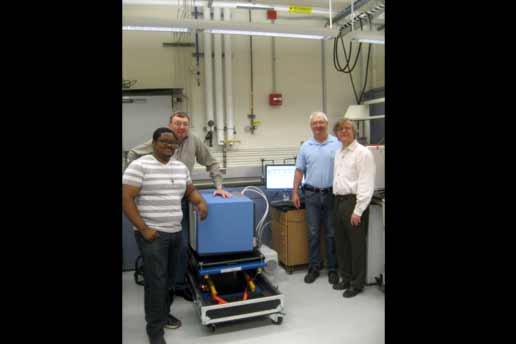
Course description from instructor:
Course 10.28, the Chemical-Biological Engineering Laboratory, is being expanded to teach important concepts of energy and to apply your new knowledge to an experiment-based project of your own choosing.
In the coming decades, innovation and change are essential as a large-scale shift to low-carbon energy supplies is key for avoiding dangerous levels of climate change. Time and again, when confronted with compelling challenges, MIT has provided its students with a world-class education leading to breakthrough scientific solutions. Never has it been more urgent to design innovative sustainable processes.
This is a very exciting time to be working in the field of energy, an area that is poised to undergo a massive transformation in the coming years as society strives to achieve a more sustainable energy future.
In this course, our research will be strongly motivated by the need to accelerate this transformation building on a collaboration with the National Renewable Energy Laboratory (NREL), a premier governmental lab, whose mission is to develop sustainable processes of industrial relevance.
You will learn how to put “principles into practice,” using state-of-the-art equipment, including bioreactors and mass spectrometry developing them into an integrated system. This course offers students an opportunity to do hands-on, meaningful, real-life, research in the energy field, combining the techniques of biochemical and chemical engineering and applying them to solving some of the biggest global challenges today.
Course Project
In this year’s course, we will focus on the production of lignin-derived target molecules (muconic acid) by engineered strains of Pseudomonas putida. Lignin is normally a waste product of the biorefinery industry.
Muconic acid (MA) is a high value-added biological product with reactive dicarboxylic groups and conjugated double bonds that has garnered increasing interest for manufacturing new functional resins, bio-plastics, food additives, agrochemicals, and pharmaceuticals. At the very least, MA can be used to produce bulk chemicals such as adipic acid, terephthalic acid and trimellitic acid, which are commercially important (Xie et al., 2014). The format of the course and choice of the project enable students with minimal biology background to be accommodated nicely.
Under faculty guidance, you will select specific original objectives, formulate hypothesis, carry out, validate, and refine experimental procedures, design and execute experiments, and present results in oral and written form. The course strengthens analytical, communications, and cooperative problem-solving skills while teaching concepts such as reaction kinetics, gas transport, and yield and productivity and how to monitor O2 consumption and CO2 production in real-time. You will carry out a mass carbon balance and learn how to monitor and control your experiments from the comfort of your living place using online software tools.
Course Format
This year’s course will be offered in a mixed mode in that students interested in the Biotechnology aspect of Chemical-Biological Engineering will have the opportunity to use an industrial yeast platform for studying the production of recombinant albumin, a molecule of medical and research importance.
Course 10.28 is open to ALL majors and all MIT-affiliated programs, with a prerequisite (or equivalent) of a lab course (5.310 or 7.02) and biochemistry (5.07 or 7.05). This course is an Elective requirement in the MIT Energy Studies Minor.
For any questions, please contact the Instructor, Dr. Jean-François Hamel, at jhamel@mit.edu. Course details here: http://web.mit.edu/10.28/www/enrollmentdetails.html
This year’s course is being offered thanks to a grant from MIT’s Energy Initiative and the Bechtel Foundation, scientific & technical support from the National Renewable Energy Laboratory), equipment loan from ThermoScientific’s Mass Spectrometry Division and donation of PI software and technical support from OSIsoft.
XieN, LiangH, HuangR, XuP. 2014. Biotechnological production of muconic acid: current status and future prospects. Biotechnology Advances. 32(3), 615–622.